Sudan
Sudan is an African country. The country is bordered by Libya to the northwest, Egypt to the north, the Red Sea to the east-northeast, Eritrea to the east, Ethiopia to the east-southeast. South Sudan to the south, the Central African Republic to the southwest and Chad to the west. The official languages of the country are Arabic, and recently (2005), English.
Sudan’s history
In Antiquity, the country largely corresponded to ancient Nubia. Some benchmarks: Kingdom of Koush (15th century – 16th century BC) Kingdom of Meroe (-800 – 350) Nobatie (350c-650c), Makurie (500c – 1285c), Alodie (350-1504), Kingdom of Daju (en) (1150c-1450c) Sultanate of Sennar (1504 – 1821), Sultanate of Darfur (1603-1874) Invasion of Sudan by Egypt (1820-1824) (fr) History of Sudan (1821-1885) (fr) Mahdist War (1881-1899), Mahdist Sudan (1885-1899) Anglo-Egyptian Sudan (1899-1956).
Nineteenth century
In the 1820s, Egypt was ruled by Pasha Mehemet Ali. Egypt being a province of the Ottoman Empire, it is in theory vassal of the sultan of Constantinople, but in practice freed itself from the supervision of this one and carries out an independent policy of territorial expansion. After fruitless attempts to conquer Palestine and Syria, he successfully embarked on the conquest of Sudan in the 1820s.
In 1885 the religious leader Muhammad ibn Abdallah, having proclaimed himself “the Mahdi” (“the awaited”), tried to unify the tribes of the West and the Center of Sudan against the Egyptian domination. He led a religious revolt which the Egyptian government proved incapable of suppressing and inflicted a crushing defeat on the army sent against him by Cairo: commanded by the English colonel Hicks, this one committed the imprudence of to venture into the desert in pursuit of the Mahdi who, when she was very exhausted and demoralized, turned against her and annihilated her. This victory, in addition to leaving Egypt almost without military means, brought to the Mahdi the means which it lacked to give to the insurrection a larger scale: the rallying of new tribes and especially thousands of Remington rifles, 5 million cartridges and artillery pieces. Hitherto confined to the desert and to guerrilla operations, the Mahdist insurgency could now attack the Egyptian cities and garrisons of Sudan, starting with the capital: Khartoum. The Khedive of Egypt asked for help from Great Britain, but the Gladstone government refused to engage troops in an adventure that did not concern it. At most, he agreed to place General Gordon at the disposal of Egypt, with the mission of organizing the evacuation of the Egyptian garrisons from Sudan, leaving the country to the Mahdi.
If Gordon knew Sudan well (in the 1870s he was Governor General, appointed by the Khedive) and if he was a convinced Christian, he did not really understand the significance of the revolt, nor the reason for it. widely mobilized the population. To quote the remarks of one of the best British observers of the time, Wilfred Scawen Blunt6, he did not realize that all the good people in Sudan were on the side of the Mahdi. Surrounded in Khartoum, he refused to abandon it and organized the defense, convinced that British public opinion and in particular the very influential League against slavery would exert on the government such pressure that it would be forced to send troops to his rescue, which was the case.
The relief expedition, commanded by Garnet Joseph Wolseley, arrived too late and was still a few days’ walk from Khartoum when it learned of the fall of the city and the death of Gordon (January 1885). The instructions Sir Garnet had received were clear: his mission was to save Gordon, not to conquer Sudan. So he turned around and returned to Egypt, bringing with him the last Egyptian garrisons; the Mahdi remained master of the whole country. The latter hardly benefited from his victory, he died a few weeks later, perhaps from meningitis. Led by the khalifa Abdullah, the Mahdist power survived until 1898 when it was destroyed at the battle of Omdurman by an Anglo-Egyptian army commanded by Sir Horatio Herbert Kitchener. This battle left 11,000 killed on the Sudanese side and 48 on the Anglo-Egyptian side, making it a massacre more than a battle, and no one questioned the fact that almost none of the 16,000 wounded Sudanese survived. Kitchener was on his way to Fachoda and his dramatic confrontation with Commander Marchand’s French expedition.
Twentieth century
1916 is the year of the defeat and death of Ali Dinar, the last sultan of Darfur. Independence was proclaimed in 1956, but the Khartoum government backed away from promises made to the southern provinces to create a federal state, which led to a mutiny led by southern officers, which was the start of a civil war seventeen years old (1955-1972).
Elections were held in April 1965 but successive governments were unable to agree on a permanent constitution or to resolve the problems of factional struggle, economic stagnation and ethnic dissent. Discontent led to a second military coup on May 25, 1969. Its leader, Colonel Gaafar Muhammad Nimeiri, became Prime Minister, and the new regime suppressed Parliament and banned all political parties. Struggles between Marxists and non-Marxists within the ruling military coalition led to a new coup in July 1971, led by the Sudanese Communist Party. A few days later, anti-communist troops of Colonel Nimeiri execute the secretary general of the Sudanese Communist Party: the writer Abdel Khaliq Mahjub, the leader of the General Confederation of Workers of Sudan, Chafi’Al Cheikh, are hanged on July 28, and hundreds of activists and unionists are executed.
In 1972, the Addis Ababa agreement ended the North-South civil war and established a certain degree of regional autonomy. In September 1983, President Nimeiri announced his decision to extend the field of Muslim law, penalized since colonization to personal law, to criminal law. Although criminal law is theoretically only personal and proportionate. This decision was the trigger for a civil war between the Government (GOS) and armed groups in South Sudan. This conflict is most often analyzed as a religious war between the North – Islamic – and the South – Christian. If this religious dimension certainly exists, as evidenced by the outbreak of the civil war following the establishment of sharia by the government of the North, the fact remains that it is to be tempered, the South being minority Christian and rather animist. It is therefore rather two cultures, a traditionalist tribal in the south and an Arab-Muslim in the north, who oppose each other. We can also analyze an opposition between the Center and the periphery, thus also explaining the drivers of conflicts in Darfur, in the west of the country, and in Béjaland, in the east of the country.
Proximity to the United States was accentuated under the administration of Ronald Reagan. American aid went from $ 5 million in 1979 to $ 200 million in 1983, and then to $ 254 in 1985, mostly for military programs. Sudan becomes the second recipient of American aid in Africa (after Egypt). Construction of four air bases to house Rapid Deployment Force units and a powerful listening station near Port Sudan started in 1984 and 1985; after a period of drought, millions of people are at risk of starvation, particularly in western Sudan. The regime makes sure to hide the situation internationally. In March 1985, the announcement of the increase in the prices of basic necessities, on the order of the International Monetary Fund with which the regime was in negotiation, provoked first demonstrations. On April 2, eight unions called for mobilization and a “general political strike until the abolition of the current regime”. On the 3rd, massive demonstrations rocked Khartoum, but also the main cities of the country; the strike paralyzed institutions and the economy. Another coup, led by General Souwar ad-Dahab, restored civilian government. However, the civil war claimed more and more lives and the economic situation continued to deteriorate.
In 1989, following a coup, General Omar el-Bechir became Head of State, Prime Minister and head of the armed forces. The 1991 criminal law instituted severe penalties throughout the country, such as amputation and stoning. Although non-Muslim southern states are officially exempt from these provisions, the law does allow for possible future application of Sharia law in the south. The civil war displaced more than four million people from the South and left two million dead. Some fled to southern cities such as Juba, others traveled north to Khartoum or took the road to neighboring countries like Ethiopia, Kenya, Uganda or Egypt. These people could not produce food or earn money for food, and malnutrition and starvation spread. Lack of investment in the South has also resulted in what international humanitarian organizations call a “lost generation”, poorly educated, without access to basic healthcare and with little chance of finding productive employment in the South or in the north.
21st century
Rebellion of 2005
Peace talks between the southern rebels and the government made notable progress in 2003 and early 2004, although clashes have reportedly continued in some southern regions. A new rebellion in western Darfur province started in early 2003. The government and the rebels were accused of atrocities during the war. In February 2004, the government proclaimed victory over the rebellion, but the rebels say they retain control of rural areas, and sources indicate that fighting continues in many places. Janjaweed militias are accused of the massacre of more than fifty thousand people, the conflict having killed, in three years, more than three hundred thousand dead and three million displaced and refugees, according to some estimates.
2005 peace agreement
On January 9, 2005, a peace agreement was signed in Nairobi between John Garang (APLS) and Vice President Ali Osmane Taha, representing the Sudanese government. It ends twenty-one years of civil war in the state, dominated by Muslims and Christian militiamen from Garang. The agreement provides for a six-year autonomy regime in South Sudan, after which a self-determination referendum will be held. On July 9, 2005, the new constitution, drawn up thanks to the Nairobi agreements, was applied and allowed the return of John Garang’s movement to Khartoum. A government of national unity is established for this transition period. On July 31, 2005, John Garang died in the crash of the Ugandan helicopter transporting him to southern Sudan. This caused several days of riots in the capital and in Juba between supporters of Garang and those of the government. Supporters of former rebel leader John Garang do not believe the government’s official thesis that the helicopter was the victim of technical problems. They start riots in Khartoum, provoking reprisals from northern militants. According to the results of the Sudanese Red Crescent, one hundred and thirty dead and more than three hundred and fifty injured.
The regime of Omar el-Bechir applies in 2018 an austerity plan of the International Monetary Fund (IMF), transferring certain sectors from imports to the private sector. As a result, the price of bread is doubled and that of gasoline increases by 30%. Inflation reaches 40%. Student movements and the Sudanese Communist Party are organizing demonstrations to challenge this policy. Omar el-Bechir reacts by arresting the secretary general of the Communist Party and two other party leaders, and by the closure of six newspapers.
Sudanese Revolution of 2019
From December 2018, a vast protest movement against the regime was formed in the cities of the far north of the country, in particular around Atbara, a working-class agglomeration and stronghold of Sudanese trade unionism. Protesters initially demand better living conditions (more than 20 million people live below the poverty line), then, as repression escalates, the resignation of the president. Omar El-Béchir was dismissed by the army and replaced by a transitional military council on April 11, 2019. On August 21, the transitional military council became the Sovereignty Council. It keeps the outgoing president and vice-president in place but has civilian members. Abdallah Hamdok, a former economist at the UN, is appointed prime minister at the head of a transitional government.
Sudan’s politics
Sudan is a presidential republic whose current president is Abdel Fattah Abdelrahmane al-Burhan. From 1983 to 1997, the country was divided into five regions in the North and three in the South, each headed by a military governor. Regional parliaments were suspended after the military coup of April 6, 1985. The Revolutionary Council was abolished in 1996 and the ruling Islamic National Front took the name of National Congress. After 1997, regional administrative structures were reformed to a system of 26 states. The members of the regional executives are appointed by the President of the Republic. The state budget is entirely dependent on the central government in Khartoum. Following a decision by the International Criminal Court (ICC), Omar al-Bashir is now under an international arrest warrant. From April 11 to 15, 2010, the first regional, legislative and presidential elections were held since 1986. The two main rivals of General Omar al-Bashir, Yasser Arman, a secular Muslim supported by the Sudan People’s Liberation Movement (SPLM, ex-southern rebels) and Sadek al-Mahdi, former Prime Minister and leader of the Umma (nationalist) party decided to boycott the electoral process and withdrew their candidacy. Tainted by serious irregularities but bringing hope according to Mrs. Véronique de Keyser, head of the European Union observation mission, the election renewed General Omar El-Béchir in his functions as head of state.
Sudan’s economy
Agriculture is the main local economic activity in the country, although 90% of economic resources come from the oil contained in its soils (which explains the tensions or conflicts in this country). The area of cultivable land in Sudan is estimated at 840,000 square kilometers. Only 18% are currently exploited. Only peace in this country would allow it to become the bread basket of Africa. The main agricultural products are cotton, sesame, peanuts, gum arabic, of which Sudan is the world’s largest producer, and sugar (the third-largest sugar producing country in Africa). Livestock, the second largest on the African continent, is the source of intense clandestine traffic with neighboring countries. Oil exploitation has started in the South and is changing the country’s economic conditions. The North owns the refineries and controls the distribution of profits. Since 2011, unemployment affects on average 18% of the working population and almost 50% of the population lives below the poverty line.
Sudan’s demography
In 2014, the population of Sudan is estimated at around 35.5 million inhabitants. Sudan is mainly populated by Arabs (70%), Nubians, Fours, Bejas and Noubas.
During the 1993 census in Sudan, the population was estimated at 30 million. No complete census has been carried out since then due to the civil wars. Sudan’s estimates, including the population of South Sudan, ranged from 37 million (United Nations estimate) to 45 million (CIA estimate). It is estimated that since the secession of South Sudan in July 2011, the current population of Sudan is around 40 million. The population of the metropolitan region of Khartoum (including Khartoum, Omdurman and North Khartoum) is growing rapidly and numbered between six and seven million, including about two million displaced from the southern war zone as well as from drought-affected regions west and east.
Sudan’s language
The official languages of the Republic of Sudan are Arabic and English, but the country shows great linguistic diversity and many languages are spoken there. They belong to several families: the Nilo-Saharan languages, the Kordofanian languages, the Kadougli languages and the Cushitic languages. According to article 8 of the 2005 Constitution: All the indigenous languages of Sudan are national languages and must be respected, developed and promoted; The Arabic language is the national language widely spoken in Sudan; Arabic, as the main language at the national level, and English will be the official working languages of the national government and the languages of instruction for higher education; In addition to Arabic and English, the legislature of any level of sub-national government can adopt another national language as the official working language complementary to its level; There will be no discrimination against the use of Arabic or English at any level of government or education.
-
Sudan
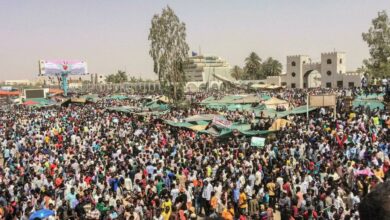
Sudanese Continue With Protests Against Military Rule & Economic Conditions
Sudanese people came out on the streets on Monday to protest against worsening economic conditions as they marched in the…
Read More » -
Sudan
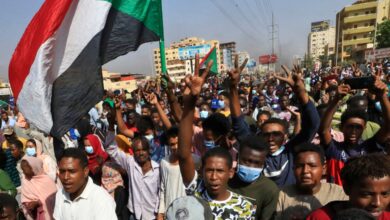
UN Mission In Sudan Calls For End Of Violence In Sudan, Restoring Stability In Darfur
The United Nations (UN) mission in Sudan has called on the Sudanese authorities to boost efforts to stop violence in…
Read More » -
Egypt
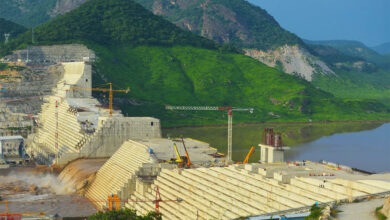
Egypt, Sudan Asks Ethiopia To Join Serious Negotiation Talks On Nile Dam Project
Egypt and Sudan have asked Ethiopia to join them for serious negotiation talks aimed at resolving an impasse over the…
Read More » -
Egypt
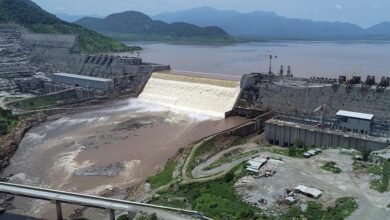
Sudanese Ministers Stress Need To Sign Legal, Binding Agreement On GERD Issue
Sudanese ministers on Thursday stressed the need to sign a legal and binding solution to the ongoing Grand Ethiopian Renaissance…
Read More » -
Sudan

Sudanese Security Forces Kill At Least Two Protesters During Monday’s Coup Protests
Sudanese security forces shot dead at least two protesters in Khartoum on Monday, an independent group of medics confirmed, as…
Read More » -
Sudan
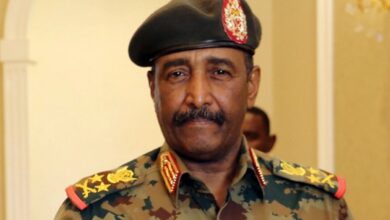
Sudanese Military Leader Abdel Fattah Al-Burhan Denies Collaborating With Israel
Sudanese military leader General Abdel Fattah al-Burhan on Saturday refuted Western threats of sanctions tied to protests in the country,…
Read More » -
Sudan
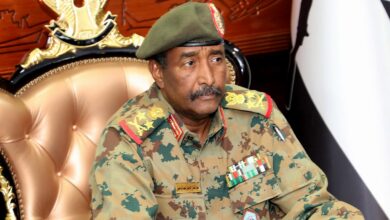
Sudanese Foreign Ministry Rejects Western Criticism Of Arrests As ‘Blatant Interference’
The Sudanese Foreign Ministry on Friday denounced the criticism of the arrest of two high-profile former officials, who opposed the…
Read More » -
Sudan

Sudanese Security Forces Kill Anti-coup Protester In Latest Crackdown In Khartoum
Sudanese forces killed a 27-year-old protester during anti-coup protests in Khartoum on Sunday, a medics group reported, reported Reuters. “Mohamed…
Read More » -
Egypt
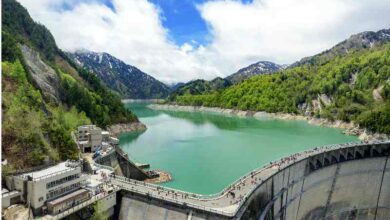
Egypt Willing To Resume Negotiation Talks With Ethiopia On Nile Dam Issue
Egypt on Tuesday said it is willing to resume negotiation talks with Ethiopia to reach an agreement on a major…
Read More » -
Sudan

Sudanese Pay Tribute To Anti-Coup Protest Killings With ‘Day For Martyrs’ On Friday
Sudanese anti-coup protesters came out on the streets on Friday to mark a “day for the martyrs” in a tribute…
Read More » -
Sudan

Sudanese Military Chief Al-Burhan Appoints Ministers Amid Growing Anti-coup Protests
Sudanese military chief, General Abdel Fattah al-Burhan, on Thursday appointed 15 ministers to a new government, despite growing anti-coup protests…
Read More » -
Sudan
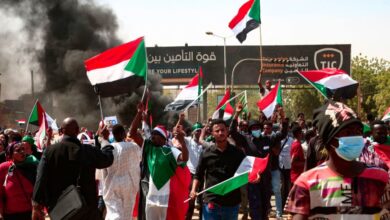
OHCHR Calls Out Sudanese Authorities To Stop Use Of Force Against Protesters
The United NationsHuman Rights Office, OHCHR, on Tuesday, called out Sudanese authorities to immediately stop unnecessary and disproportionate use of…
Read More » -
Sudan

Sudanese Security Forces Kill At Least Seven Protesters During Monday’s Rallies
Sudanese security forces killed at least seven protesters on Monday during rallies against last year’s military coup, medics said, reported…
Read More » -
Sudan
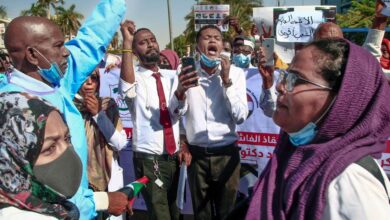
Sudanese Doctors Protest Against Attacks By Security Forces On Medical Personnel
Sudanese doctors came out on the streets in Khartoum on Sunday to protest against attacks by security forces against medical…
Read More » -
Sudan

Sudanese Anti-Coup Protest Group Rejects UN-Led Talks With Military To End Crisis
The Sudanese Professionals’ Association, one of the major organizers of anti-coup protests in Sudan, on Sunday rejected the United Nations’…
Read More » -
Sudan

Sudanese Security Forces Kill Atleast 3 Protesters Demonstrating Against Military
At least 3 Sudanese protesters were killed in firing by security forces in Khartoum on Thursday during the latest mass…
Read More » -
Sudan

Sudanese Military To Face Economic Sanctions If It Appoints A Government Unilaterally
The United States (US), European Union, Britain, and Norway on Tuesday warned the Sudanese army against appointing their own prime…
Read More » -
Sudan
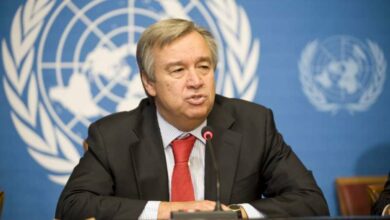
UN Chief Antonio Guterres Condemns Violence Against Protesters In Sudan
The United Nations (UN) Secretary-General António Guterres on Monday condemned the ongoing violence against protestors in Sudan, following the October…
Read More » -
Sudan
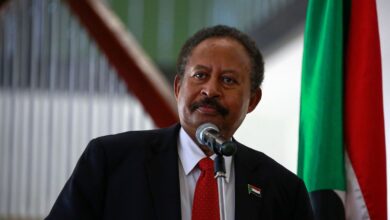
Sudanese PM Abdallah Hamdok Resigns After Deadly Crackdown On Protesters
Sudanese Prime Minister Abdallah Hamdok on Sunday announced his resignation following a deadly crackdown on protesters in Khartoum, reported CGTN…
Read More » -
Sudan

OHCHR Calls For Investigation Into Sexual Violence Reports During Sudan Protests
The United Nations Human Rights Office (OHCHR) on Tuesday called for an immediate investigation into reports of serious sexual violence…
Read More » -
Sudan

Sudanese Take To Streets In Mass Anti-Coup Protests Against Military Takeover
Hundreds of Sudanese took to the streets in Khartoum on Sunday to protest against the October 25 military takeover, as…
Read More » -
Sudan

Sudanese Military Chief Calls Out United Nations To Support Transitional Government
Sudanese military chief Gen Abdel Fattah al-Burhan on Thursday called the United Nations to support the transitional government, reported The…
Read More » -
Sudan

Sudanese Security Forces Fire Tear Gas On People Protesting Against Military Rule
Sudanese security forces fired tear gas on Tuesday to disperse thousands of protesters who gathered in central Khartoum and marched…
Read More » -
Sudan
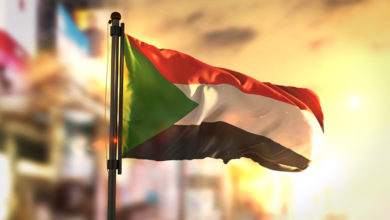
Sudanese Protest Against Prime Minister Abdalla Hamdok’s Agreement With Military
Thousands of Sudanese came out on the streets of Khartoum and other cities on Thursday to protest against a deal…
Read More » -
Sudan

Sudan’s Reinstated PM To Review Appointments Made By Military After Coup
Sudan’s reinstated Prime Minister Abdallah Hamdok on Wednesday said all the appointments and dismissals made since last month’s military coup…
Read More »

